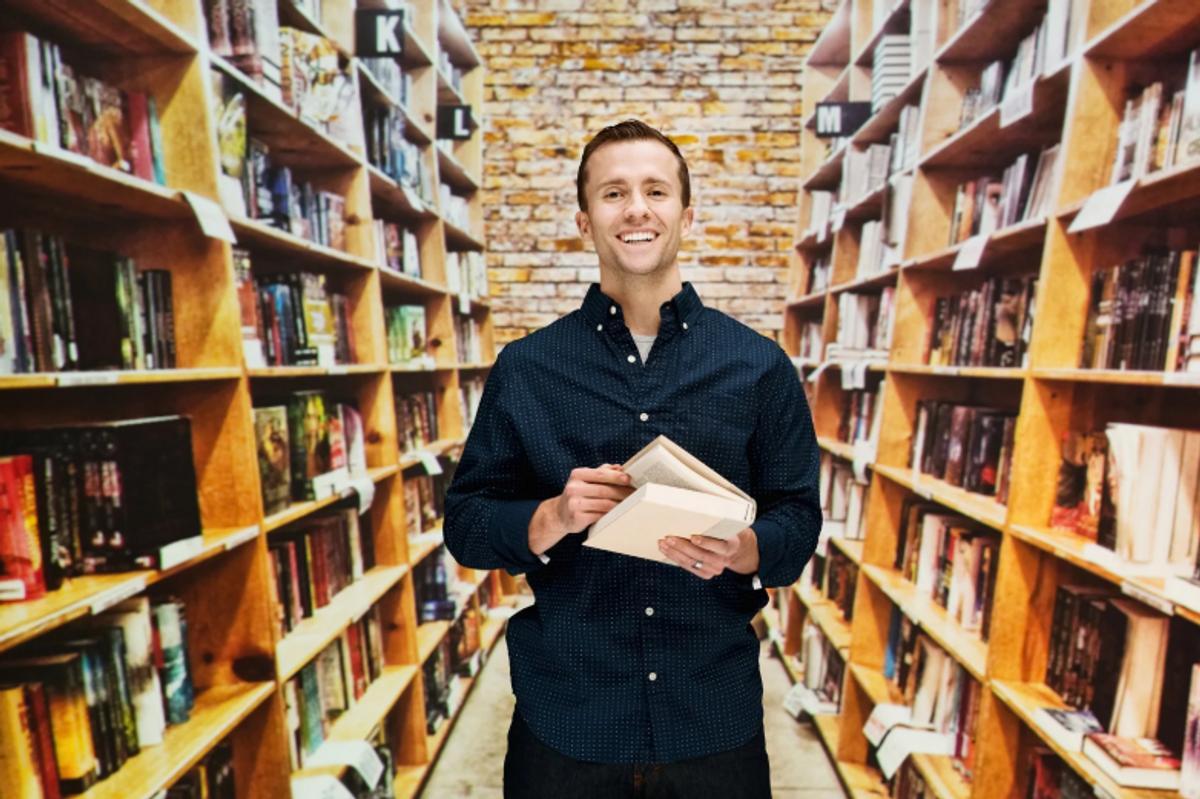Literature professor explains how history changed whether people bookmark or 'dog ear' books
"Dog ear your own books. Fine. Do this to library books and I will find you…"

English literature professor explains history of libraries and dog-earing books versus using bookmarks.
All bibliophiles have a personal method for marking their "spot" in books. Some are fans of "dog ears"—folding the top corner of the page--while others prefer to use bookmarks. If you're a voracious reader, it's a divisive topic that has a surprisingly deep history related to libraries dating back to the 16th century.
NPR's Andrew Limbong, a reporter and host of NPR's Book of the Day podcast, interviewed Ian Gadd, an English literature professor at Bath Spa University in England to explain the history of dog-earing books—and how the two camps evolved.
"In England, from the 16th century to the 18th century, dog-earing was not a big deal," says Limbong. "In fact, dog-earing a book like the Bible was a way of showing you've been keeping up with the reading."
In the interview with Gadd, he explains, "It becomes a sign of piety," adding that, although many people during that time were illiterate, it became a sign that they were "much more learned than they are."
However, attitudes began to change about dog-earing books in the 18th century. Limbong says that at that time, literacy had become much more widespread, with all classes and genders now partaking in reading—and the upper classes "feeling some sort of way about their precious books." Gadd added that with more information more widely available to lower classes, it instilled anxiety among elites who held power over them.
Additionally, people began to view and treat older, antique books as more valuable, just as subscription libraries were starting to become "a thing." Gadd explains that people were getting "very anxious" about lending out books for fears of them being returned "tattier than it was...you didn't treat them properly." The combination of these things led books to become "an extension of virtue, morality", Limbong says.

The informative interview got a passionate response from viewers, with many sharing their preference and opinions when it comes to dog-earing books versus using bookmarks. "Dog ear your own books. Fine. Do this to library books and I will find you…," one wrote in the comment section. "I’m a librarian in a public library and I cannot tell you the fury I feel when a book comes back dog eared!" another commented. Another shared, "I suppose my pov is that they get damaged quicker and sometimes some books are out of print and can’t be replaced when you go to reorder. The boring pragmatic point of view!"
Fans of dog-earring books elaborated on their choice to do so. "I’m all dog-ear. And margin notes. To me, books are to be in relationship with. We’re engaging with one another which inevitably causes some wear and tear, like a well loved pair of shoes🤷🏾♂️," one shared. Another fan added, "You’ll find dog-eared pages and scribbles in my books. Come. At. Me."

Others noted they simply liked seeing books dog-eared. "I do not dog ear books, but I kind of like seeing library books dog eared while I’m reading it. I feel like a connection with that random person- like they stopped and picked back up at this point. Like I *know* other people read library books, but seeing the shadows of a dog ear is like a little reminder."
Those in the bookmark club also expressed their opinions. "Anything can be a bookmark. No need to dog ear ever. Of course, if you own the book, do what you want. Many of my books are full of notes . And when I buy used books, I love coming across an odd note or a strange bookmark," one commented. Another added, "I collect art cards and postcards when I travel and they make great bookmarks!"

Others shared they are fans of both camps. "I do both-bookmark for place holding while reading and dog ear to return to certain pages. If I use a book a LOT, I DO love those slim mini post-its though…" one wrote. Another shared, "They serve different purposes… bookmark to keep place in current read, dogear for having the ability to return to something poignant later. To be clear I only do this with books I own."






 A teacher folding her hands.via
A teacher folding her hands.via What would you do if you found a lone egg on the ground? Photo by
What would you do if you found a lone egg on the ground? Photo by  Lee Hart
Lee Hart  Parents of the 5th grade students were outraged.Canva Photos
Parents of the 5th grade students were outraged.Canva Photos The classroom is supposed to be a safe space for all students. Photo by
The classroom is supposed to be a safe space for all students. Photo by  A family enjoying a vacation together.
A family enjoying a vacation together.